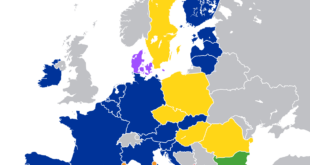Every year, on 31st May, the World Health Organization (WHO) and global partners celebrate World No Tobacco Day (WNTD).
Important points:
- The theme for the World No Tobacco Day 2021 is “Commit to Quit”.
- The WHO has honoured Indian Union health minister Harsh Vardhan with Director-General Special award for his efforts to control tobacco consumption in India.
- His leadership was instrumental in the 2019 national legislation to ban E-cigarettes & heated tobacco products.
- In India, over 1.3 million deaths are attributable to tobacco use every year amounting to 3500 deaths per day, imposing a lot of avoidable socio-economic burden.
- In addition to the death and diseases it causes, tobacco also impacts the economic development of the country.
- Smokers face a 40-50% higher risk of developing severe disease deaths from Covid-19.
- As per the WHO study (Published in August 2020) titled “Economic Costs of Diseases and Deaths Attributable to Tobacco Use in India”.
- It has been estimated that the economic burden of diseases and deaths attributable to use of tobacco in India was as high as Rs. 1.77 lakh crores, amounting to approx 1% of GDP.
Measures towards tobacco control in India:
- India adopted the tobacco control provisions under WHO Framework Convention on Tobacco Control (WHO FCTC).
- It replaced the Cigarettes Act of 1975 (largely limited to statutory warnings- ‘Cigarette Smoking is Injurious to Health’ to be displayed on cigarette packs and advertisements. It did not include non-cigarettes).
- The 2003 Act also included cigars, bidis, cheroots, pipe tobacco, hookah, chewing tobacco, pan masala, and gutka.
- Promulgation of the Prohibition of Electronic Cigarettes Ordinance, 2019: Which prohibits Production, Manufacture, Import, Export, Transport, Sale, Distribution, Storage and Advertisement of e-Cigarettes.
- National Tobacco Quitline Services (NTQLS): Tobacco Quitline Services have the potential to reach a large number of tobacco users with the sole objective to provide telephone-based information, advice, support, and referrals for tobacco cessation.
- It is an initiative using mobile technology for tobacco cessation.
- India launched mCessation using text messages in 2016 as part of the government’s Digital India initiative.
Decline in Tobacco Consumption:
- The prevalence of tobacco use has decreased by six percentage points from 34.6% in 2009-10 to 28.6% in 2016-17.
- Under the National Health Policy 2017, India has set an ambitious target of reducing tobacco use by 30% by 2025.
WHO Framework Convention on Tobacco Control
- Governments adopt and implement the tobacco control provisions of the WHO Framework Convention on Tobacco Control (WHO FCTC).
- It is the first international treaty negotiated under the auspices of the WHO.
- It was adopted by the World Health Assembly (apex decision making body of WHO) on 21st May 2003 and entered into force on 27th February 2005.
- It was developed in response to the globalization of the tobacco epidemic and is an evidence-based treaty that reaffirms the right of all people to the highest standard of health.
The FCTC’s measures to combat tobacco use include:
- Price and tax measures.
- Large, graphic warnings on tobacco packages.
- 100% smoke-free public spaces.
- A ban on tobacco marketing.
- Support for smokers who want to quit.
- Prevention of tobacco industry interference.
SOURCE: THE HINDU,THE ECONOMIC TIMES,MINT
 Chinmaya IAS Academy – Current Affairs Chinmaya IAS Academy – Current Affairs
Chinmaya IAS Academy – Current Affairs Chinmaya IAS Academy – Current Affairs



